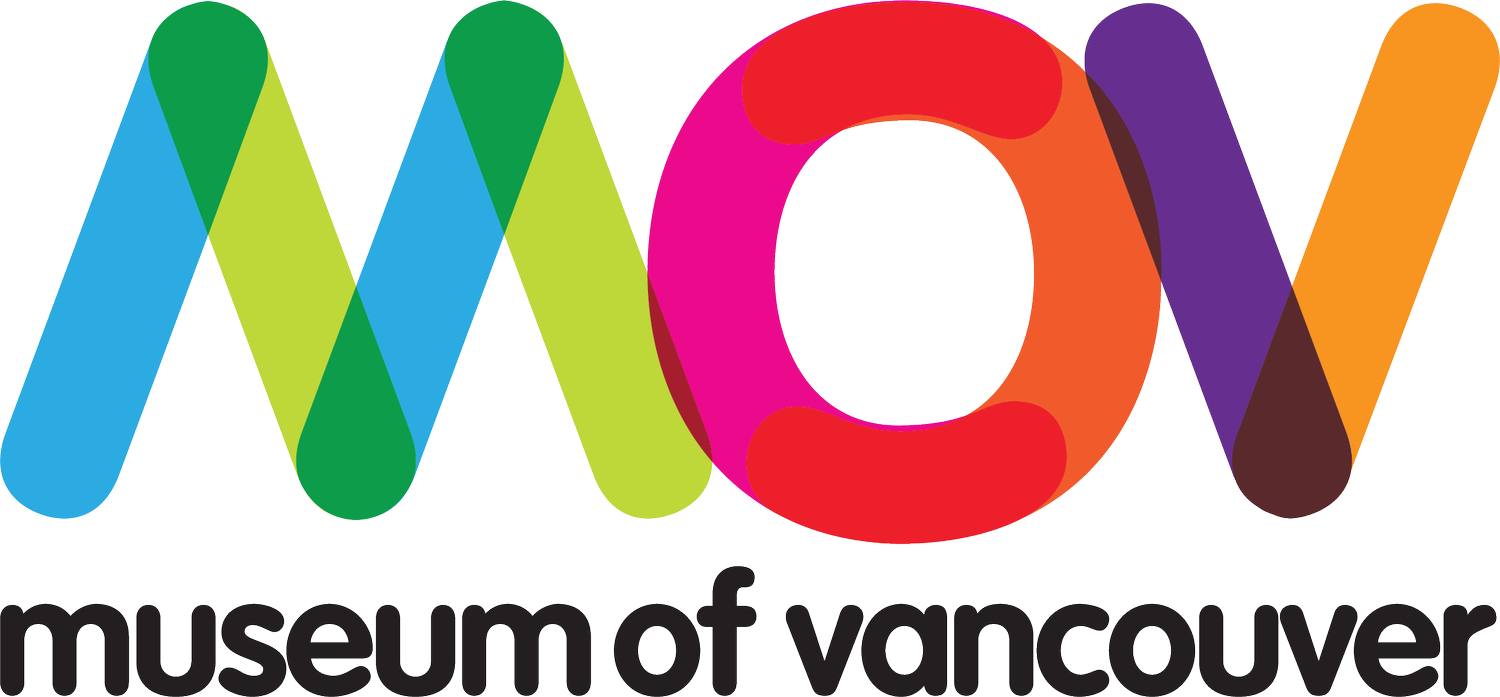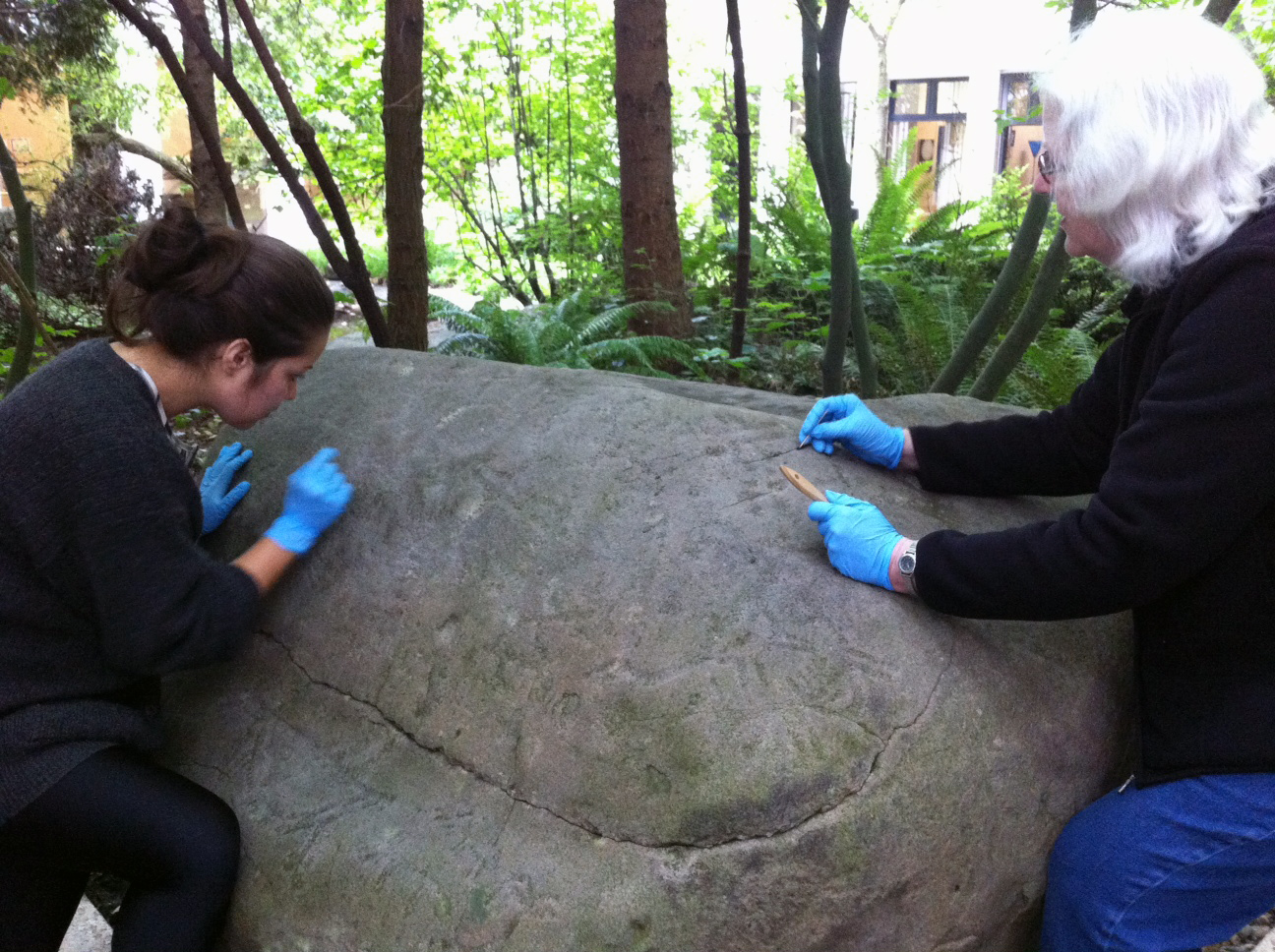Repatriation Monologues: Panel Discussion
Photo: MOV
Join us for our upcoming panel discussion exploring the importance of repatriating belongings and intellectual property to indigenous communities
Join us for our upcoming panel discussion exploring the changing perspectives in museum curatorial practices with respect to repatriation and reconciliation. Moderated by Kate Hennessy (SFU), panelists Lucy Bell (RBCM), Sharon Fortney (MOV), Kwiaahwah Jones (Guest Haida Curator for Haida Now), and Bruce Granville Miller (UBC) will share stories and engage in conversation around the importance of repatriating ancestral belongings and intellectual property to Indigenous communities. Panelists will explore possible strategies and unanswered questions, including addressing the relationship between technology and museums, and the role that digital experiences play in facilitating repatriation — in an effort to address how museums can become better places in the future for communities to share knowledge.
Date: Thursday, April 19
Time: 7:00pm - 8:30pm
Admission: $14 Early Bird, $19 General Admission, $10 MOV Members, Free to individuals who self-identify as Indigenous.
**Early Bird ticket sales end April 18th at 5pm.
Note: Event ticket includes FREE admission to Haida Now (reg. $19). Please arrive early with your event ticket to view the exhibit.
About the Moderator
Kate Hennessy, PhD. (Associate Professor, School of Interactive Arts & Technology at Simon Fraser University)
Kate Hennessy is an Associate Professor specializing in Media at Simon Fraser University’s School of Interactive Arts and Technology (SIAT). She is a cultural anthropologist with a PhD from the University of British Columbia (Anthropology). As the director of the Making Culture Lab at SIAT, her research explores the role of digital technology in the documentation and safeguarding of cultural heritage, and the mediation of culture, history, objects, and subjects in new forms. Her video and multimedia works investigate documentary methodologies to address Indigenous and settler histories of place and space. Current projects include the collaborative production of virtual museum exhibits with Indigenous communities in Canada; the study of new digital museum networks and their effects; ethnographic research on the implementation of large scale urban screens in public space; open-access and innovative forms of publishing; and, the intersections of anthropology and contemporary art practices. She is a co-founder of the Ethnographic Terminalia Curatorial Collective and is the co-curator (with Vince Dzeikan) of MWX 2018 at Museums and the Web, Vancouver.
About the panel
Lucy Bell (Head of First Nations Department and Repatriation Program at the Royal BC Museum)
Lucy Bell has been the Head of the First Nations Department and Repatriation Program at the Royal BC Museum since January 2017. Lucy’s department brings the former ethnology and archaeology departments onto one team. A member of the Haida Nation, Lucy is a founding member of the Haida Heritage and Repatriation Society, where she has been at the forefront of the Nation’s repatriation program.
She began her career in 1995 at the Royal BC Museum as part of the Aboriginal Cultural Stewardship Program and has since developed, delivered and managed an array of pioneering initiatives aimed at increasing awareness of First Nations culture.
Since 2005, Lucy has coordinated the return of more than five hundred Haida ancestors from museums throughout North America and the United Kingdom. The documentary Stolen Spirits of Haida Gwaii charts the success of just one strand of this remarkable program.
Prior to joining the Royal BC Museum, Lucy worked for the Xaad Kihlgaa Hl Suu.u (Speak Haida Society). She is passionate about the repatriation and revitalization of language resources from museum and archival collections. Lucy has presented on both repatriation and language revitalization at several conferences around the world, advised on the development of a number of exhibitions on Indigenous culture and promoted Haida culture in both print and broadcast media.
Sharon M. Fortney, PhD. (Curator of Indigenous Collections and Engagement at the Museum of Vancouver)
Sharon Fortney is Curator of Indigenous Collections and Engagement with the Museum of Vancouver. Her responsibilities include community consultation for exhibit development, care of the indigenous collections, and repatriation. She has a BA in archaeology from the University of Calgary, and a MA and PhD in anthropology from UBC. She has published papers and reports on various aspects of First Nations culture, including Coast Salish Art, native newcomer relations, and Sto:lo basketry. Sharon has Klahoose (Northern Coast Salish) and German ancestry.
Sharon has worked on research and exhibit projects for the Glenbow Museum, UBC Museum of Anthropology, Department of Canadian Heritage (Western Division), West Vancouver Museum and Archives, North Vancouver Museum and Archives, Musqueam Indian Band, Seattle Art Museum, New Westminster Museum and Archives, Surrey Museum and Archives, Squamish-Lil'wat Cultural Centre, Burnaby Village Museum, Canadian Science and Technology Museum, and the Bill Reid Gallery.
Kwiaahwah Jones (Guest Haida Curator for Haida Now)
Kwiaahwah is of Nishgaa and Haida descent and aspired to become an artist all her life. From 2007 to 2009, she worked as Curator at the Haida Gwaii Museum with Nathalie Macfarlane.
In 2010, she began work at the Bill Reid Gallery for northwest coast art to curate, and program exhibitions into 2016.In 2016 she left the Bill Reid Gallery to pursue her ambitions to learn to do traditional Haida handpoke tattoos.
Currently she is the guest curator of the exhibition, Haida Now at the Museum of Vancouver, an exhibition feauturing over 450 Haida works collected from as early as the 1880s from Haida Gwaii. Kwiaahwah is also dedicated to her culture and developing her own artistic practice living and working between Vancouver and Haida Gwaii.
Bruce Granville Miller, Ph.D. (Professor, Department of Anthropology at University of British Columbia)
I have been a professor at UBC since 1990. My research concerns Indigenous peoples and their relations with the state in its various local, national, and international manifestations. In recent years my work has particularly overlapped with colleagues in archaeology and in law.
Much of my ethnographic work has been with the Coast Salish of BC and Washington State, but I have also worked in Brazil, Papua New Guinea, several areas of the US, and Taiwan. I have served on a number of occasions as an expert witness in Indigenous litigation in the United States and Canada, including, United States v Washington (a treaty case) and, the Radek case before the BC Human Rights Tribunal, (a precedent-setting case regarding Aboriginal presence in public spaces and racial profiling).
I am a member of the board of the Museum of Vancouver and chair of the collections committee, which has initiated a progressive program of repatriation to First Nations.
From 1995-98 I was Anglophone Editor of Culture, the journal of the Canadian Anthropology Society.
In partnership with:
Partners in Reconciliation:
Institutional Partners:






